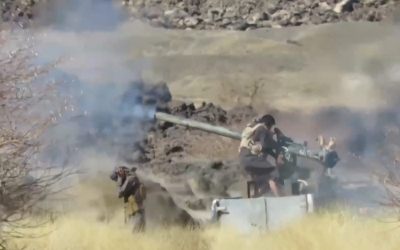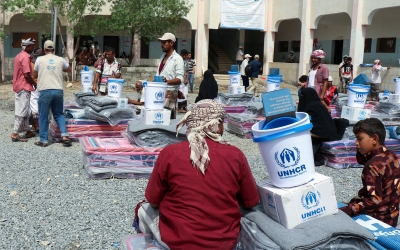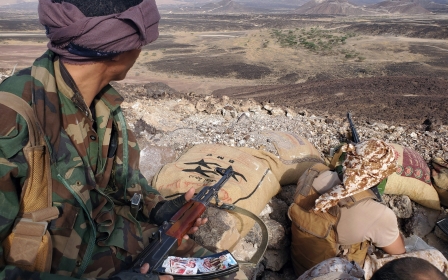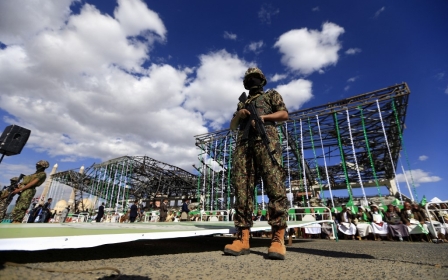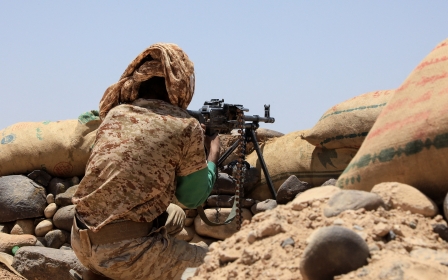Yemen: Scores killed as fight for northern city of Marib intensifies
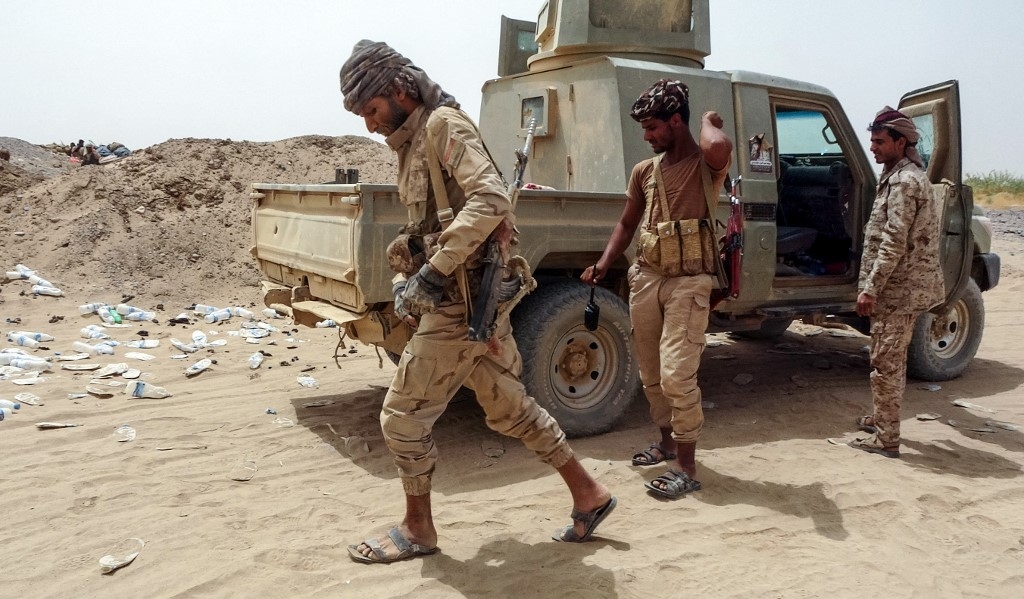
At least 50 Houthi rebels and Yemeni pro-government troops have been killed as fighting intensifies for the city of Marib, a key battleground of the seven-year conflict, according to military sources on Sunday.
Hundreds of fighters have died this month alone after the Iran-aligned rebels renewed their campaign for Marib, the government's last stronghold in the oil-rich north.
New MEE newsletter: Jerusalem Dispatch
Sign up to get the latest insights and analysis on Israel-Palestine, alongside Turkey Unpacked and other MEE newsletters
"In the past 48 hours, 43 Houthi fighters were killed, mostly in coalition air strikes" west of Marib, a military source told AFP news agency, while another source said at least seven loyalists died in the fighting. The rebels rarely announce their casualties.
About 400 people have been reported killed in clashes in September for the northern city, following a lull in fighting in the region.
The Houthis initially escalated their efforts to seize Marib in February, hoping to gain control of the strategically vital city and the region's oil resources.
Marib, about 120 kilometres east of the rebel-held capital Sanaa, sits at a crossroads between the southern and northern regions and is key to controlling Yemen's north.
Seven years of war
The war between the Saudi-led military coalition, which backs the government, and the Houthis has killed more than 230,000 people and forced millions from their homes.
About 80 percent of Yemen's 30 million people are dependent on aid, in what the United Nations calls the world's worst humanitarian crisis.
Yemen's conflict flared in 2014 when the Houthis seized the capital Sanaa, prompting Saudi-led intervention to prop up the internationally recognised government the following year.
This month marks seven years since the rebels took control of Sanaa, with some analysts saying the balance has tilted in favour of the Houthi movement against the coalition.
While the UN and Washington are pushing for an end to the war, the Houthis have demanded the re-opening of Sanaa airport, closed under a Saudi blockade since 2016, before any ceasefire or negotiations.
The last talks took place in Sweden in 2018, when the opposing sides agreed to a mass prisoner swap and to spare the city of Hodeidah, where the port serves as the country's lifeline.
Middle East Eye delivers independent and unrivalled coverage and analysis of the Middle East, North Africa and beyond. To learn more about republishing this content and the associated fees, please fill out this form. More about MEE can be found here.


